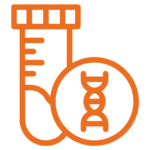Looking for a Diagnosis for Your Child? What to Know About Finding a Provider
July 17, 2023

Currently, families find extremely long waitlists for diagnostic evaluation appointments. Those who call our 800.4.AUTISM Helpline report difficulty finding a diagnostician who can see them. The average wait time reported by families is 9 months, but the appointments for some can stretch as far as 24 months into the future. Some medical providers, booked solid as far out as 2025, have stopped scheduling new patients altogether.
This phenomenon, prevalent even before the pandemic, was intensified by the temporary suspension of many in-person medical visits and the steady increase in autism awareness driving families to seek diagnostic services. Read more about steps to take while you wait.
 Importance of Getting a Diagnosis
Importance of Getting a Diagnosis
Formal diagnoses, however, remain crucial. Most insurance plans in New Jersey cover ABA therapy. However, insurance carriers require an autism diagnosis before they authorize treatment or pay claims. In addition, carriers may be heightening their scrutiny over diagnostic requirements.
^Back to top^
Who Can Diagnose Autism?
As a parent, knowing what to look for in a diagnostic evaluation can make a huge difference. One thing to keep in mind is whether the person evaluating your child has diagnosing conditions within their scope of practice. In general, the following clinicians are able to diagnose autism:
- developmental behavioral pediatricians
- psychiatrists
- neurologists
- advanced nurse practitioners
- clinical psychologists
- licensed clinical social workers.
General pediatricians are also able to diagnosis autism if they have experience in autism assessment and feel comfortable doing so.
Some other providers who may be working with your child, such as an early interventionist, school psychologist, or speech and language pathologist, can provide valuable input into the diagnostic process but are not able to diagnosis autism. Another example is a Board Certified Behavior Analyst (BCBA), a professional who would create a treatment plan for ABA therapy and supervise the treatment. However, they cannot diagnose autism because that is out of their scope of practice.
When choosing a diagnostician, you should ensure that no matter their specialty, they have experience working with pediatric patients and autism diagnoses. In addition, ensure that your chosen diagnostician accepts your insurance. Research your insurance by reviewing your summary plan description closely. You should also see if your child’s educational placement has any diagnostic requirements for autism treatment. While New Jersey code (N.J.A.C. 6A:14-3.5 (c)(2)) maintains that a child must be assessed by a physician trained in neurodevelopmental assessment to be eligible for a public school’s special education services, some school districts give parents a bit more leeway when they make a determination of special education eligibility.
If you get a diagnosis from a professional who does not have it within their scope of practice, it may cause difficulties for you in the future with things such as: changing treatment providers, insurance claim denials, and friction with your public school if you seek eligibility for a special education placement or related services.
 Do I Need a Formal Autism Diagnostic Assessment?
Do I Need a Formal Autism Diagnostic Assessment?
You may have heard about formal autism diagnostic assessments and are wondering how they fit into the diagnostic process. They include, but are not limited to, the following tests:
- The Autism Diagnostic Interview – Revised (ADI-R)
- Autism Diagnostic Observation Schedule (ADOS-2)
- Childhood Autism Rating Scale (CARS-2)
- Gilliam Autism Rating Scale (GARS-3)
Many diagnosticians will use one of these assessments to supplement their direct observations and interviews with caregivers. These assessments are widely used, but they are not required for a valid diagnosis. In fact, research supports the idea that an ADOS-2 is not needed to make an accurate diagnosis, and that the decision to administer it should be made by the diagnostician. The diagnostician must use the diagnostic criteria for Autism Spectrum Disorder as outlined in the Diagnostic and Statistical Manual of Mental Health Disorders (DSM-5-TR). Overall, diagnostic tools are used in conjunction with clinical judgment as part of a diagnostic evaluation, but they should not be used in isolation.
Because the ADOS-2 has become so widely used, some ABA therapy providers may ask for it under the mistaken assumption that all insurance companies require the ADOS before they will fund treatment. It may be helpful to collaborate with your prospective service providers and your insurance company prior to your diagnostic evaluation appointment, so that you can confirm what information an autism evaluation report needs to contain.
 Should We Go for Genetic Testing?
Should We Go for Genetic Testing?
You may have heard of some companies offering testing for autism through saliva or hair. While these tests might reveal genes linked to autism, the causes of autism are still unknown and there is currently no medical test for diagnosing autism spectrum disorder. Most researchers believe there is no single cause. Current research strongly suggests that autism is a genetic disorder, possibly triggered by environmental (nongenetic) factors yet to be determined.
Genetic testing, usually through bloodwork, if recommended by your child’s doctor, does have benefits. For example, your doctor may suggest a microarray or testing for Fragile X Syndrome. Benefits of genetic testing may include providing additional information to your family and medical providers, preventing associated medical issues, and help with family planning. However, a recognizable genetic cause is only identified in a minority and, while these tests may provide additional information about your child, they cannot provide an autism diagnosis. Genetic testing does not replace an evaluation by skilled diagnostician utilizing the DSM-5-TR criteria and clinical assessment.
 What Should I Expect?
What Should I Expect?
While you may not need to have an ADOS-2 completed, you should ensure that the diagnostician spends a sufficient amount of time with you and your child. You may also be asked to fill out questionnaires ahead of time. Autism Spectrum Disorder is a clinical diagnosis, which means that a diagnostician with clinical experience will review all relevant information, including the history that the parent or family provides, observations and possibly formal assessments with the child, and any other information you have, such as feedback from teachers or therapist or review of prior assessments. A typical diagnostic evaluation will likely take 1-2 hours, which could be over 1 or 2 separate appointments, and you should receive an evaluation report as a result.
 What About Telehealth or Virtual Appointments?
What About Telehealth or Virtual Appointments?
Some companies are aware of the long waitlists and have been taking novel steps to improve access to timely evaluation appointments. This may be through an autism service provider who has added diagnostic services and/or through apps, websites, or telehealth services, such as As You Are or Innov8. It may be very tempting to use these services as they promise much shorter waiting times, and they may be able to provide an accurate and complete diagnostic evaluation. It is important, however, that you do the same research and ask the same questions to these services:
- Who will be providing the diagnosis? What are their credentials and what training and experience do they have in autism diagnosis?
- Do you accept my insurance?
- Will my insurance accept this diagnosis?
- How much time will you spend with my child and me? What assessment tools do you use, if any?
Ultimately, you want to make sure that you choose an experienced, compassionate, and qualified diagnostician who will conduct an affordable and complete evaluation within a reasonable amount of time from when you notice red flags for autism. Our 800.4.AUTISM Helpline can help you navigate these important questions and support you in your search for a provider, an autism diagnosis, and ultimately the right treatment for your child and family.
Timely Diagnosis Project
For more information about how our healthcare initiative is trying to address the issue of waitlists for diagnostic evaluations, you can visit our healthcare priorities page and review our timely diagnosis project. You can also read more about the diagnostic process and what to do next in our Start Here publication.
A special thank you to Oana DeVinck-Baroody, D.O., Developmental Behavioral Pediatrician at Hackensack Meridian Health’s Institute for Child Development for her contributions to this article.

 Importance of Getting a Diagnosis
Importance of Getting a Diagnosis
 Do I Need a Formal Autism Diagnostic Assessment?
Do I Need a Formal Autism Diagnostic Assessment? Should We Go for Genetic Testing?
Should We Go for Genetic Testing? What Should I Expect?
What Should I Expect? What About Telehealth or Virtual Appointments?
What About Telehealth or Virtual Appointments?